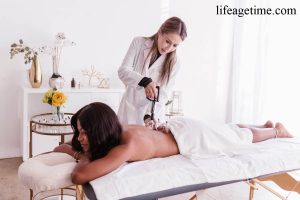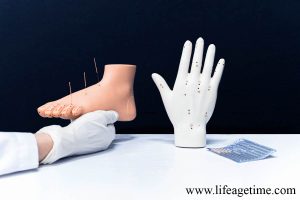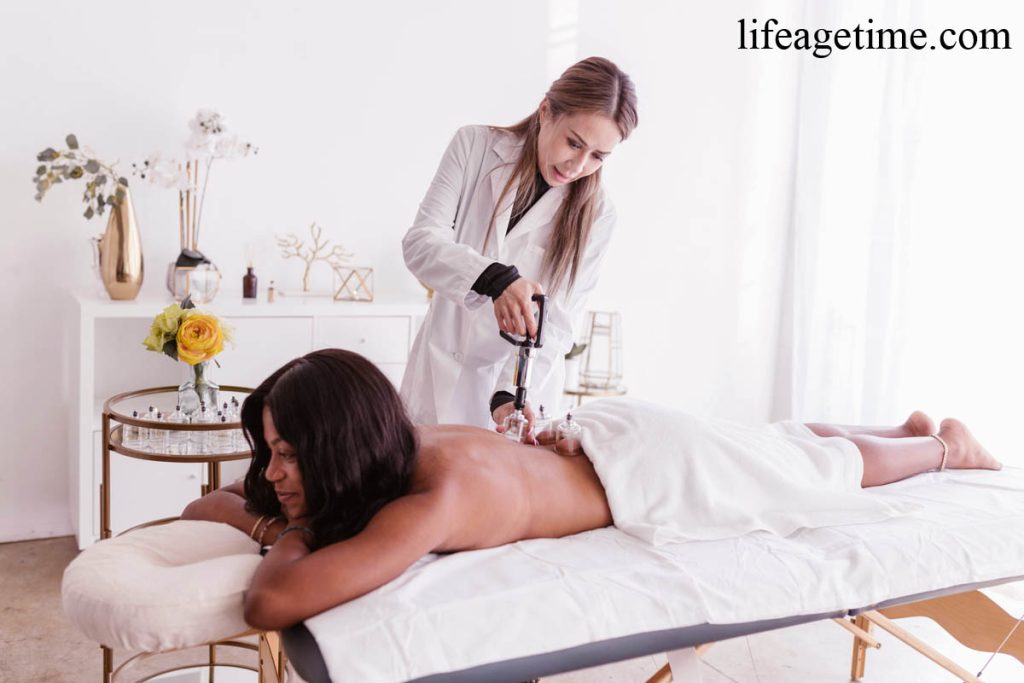Acupuncture Orillia offers traditional and contemporary acupuncture treatments in Orillia, United Kindom. Services include pain relief and enhancing overall well-being through acupuncture therapy.
Acupuncture is a natural and effective way to manage various conditions, supported by the World Health Organization and clinical studies. From chronic pain to fertility and anxiety issues, acupuncture provides holistic healing to individuals seeking alternative therapy options. Whether it’s relieving pain, improving motion, or promoting general wellness, Acupuncture Orillia offers personalized treatments to address individual health needs.
With skilled practitioners and a focus on natural healing methods, Acupuncture Orillia aims to provide a restorative and rejuvenating experience for its clients in Orillia, United kindom
Understanding Acupuncture
Enhance your well-being with Acupuncture in Orillia. Discover the benefits of this traditional practice for pain relief and improved health. Book your appointment today for a revitalizing experience.
What Is Acupuncture?
Acupuncture is a traditional Chinese medicine practice that involves inserting thin needles into specific points on the body to help alleviate pain and promote healing.
Benefits Of Acupuncture
Acupuncture has been endorsed by the World Health Organization and has been shown to be effective for managing various conditions such as migraines, neck and back pain, tendonitis, and more.
Conditions Treated By Acupuncture
Acupuncture, a traditional Chinese medicine practice, offers a natural and holistic approach to healing various health conditions. Through the insertion of thin needles into specific points on the body, acupuncture can effectively treat a wide range of ailments. Below, we explore some of the conditions that can benefit from acupuncture.
Chronic Pain
Acupuncture is renowned for its ability to alleviate chronic pain, providing relief for individuals suffering from migraines, neck and back pain, tendonitis, sciatica, carpal tunnel syndrome, and more. By stimulating specific acupuncture points, this ancient therapy helps regulate the body’s qi (energy) flow, promoting pain relief and enhancing overall well-being.
Fibromyalgia And Arthritis
Individuals with fibromyalgia and arthritis often experience debilitating pain and stiffness. Acupuncture offers a non-invasive and drug-free alternative for managing these conditions. By targeting acupuncture points associated with pain relief and inflammation reduction, acupuncture can help improve joint mobility, reduce pain severity, and enhance daily functioning.
Anxiety And Stress
Anxiety and stress have become common challenges in today’s fast-paced world. Acupuncture provides an effective way to restore balance and alleviate these mental health concerns. By targeting specific acupuncture points, this ancient practice stimulates the release of endorphins and reduces cortisol levels, leading to a sense of calm, relaxation, and overall emotional well-being.
Tip: Ready to experience the healing benefits of acupuncture? Don’t hesitate to book an appointment at Acupuncture Orillia and start your journey towards better health and well-being today!
Acupuncture Techniques
Acupuncture is a traditional Chinese medical practice that has been used for centuries to promote healing and balance within the body. There are various techniques used in acupuncture, each with its own unique benefits and purposes. In this article, we will explore the two main categories of acupuncture techniques: Traditional Chinese Medicine (TCM) and Modern Acupuncture Techniques.
Traditional Chinese Medicine (tcm)
Traditional Chinese Medicine (TCM) is the foundation of acupuncture. It is based on the belief that the body is composed of interconnected energy pathways known as meridians, through which vital energy or Qi flows. TCM practitioners use various acupuncture techniques to restore the balance of Qi and promote optimal health. Some commonly used acupuncture techniques in TCM include:
- Inserting thin needles – During an acupuncture session, thin needles are inserted into specific points along the meridians. This helps to stimulate the flow of Qi in the body and restore harmony.
- Moxibustion – This technique involves burning the herb called moxa near the acupuncture points to warm and stimulate them. It can be used to treat conditions such as pain, cold, and weakness.
- Cupping – Cupping is the process of placing heated cups on the skin to create a suction effect. It helps to improve blood circulation, alleviate pain, and promote healing.
- Tui Na massage – Tui Na is a form of therapeutic massage that focuses on specific acupressure points and meridians. It helps to relieve tension, improve circulation, and promote overall well-being.
Modern Acupuncture Techniques
In addition to Traditional Chinese Medicine (TCM) techniques, modern acupuncture has also evolved with advancements in technology and medical knowledge. These techniques aim to enhance the effectiveness and precision of acupuncture treatments. Some examples of modern acupuncture techniques include:
- Electroacupuncture – This technique involves the use of electrical stimulation applied to the acupuncture needles. It can provide stronger and more targeted stimulation to the acupuncture points, resulting in enhanced therapeutic effects.
- Laser acupuncture – Laser acupuncture uses a low-intensity laser to stimulate the acupuncture points instead of needles. It is a non-invasive alternative suitable for those who may be sensitive to needle insertions.
- Auricular acupuncture – Auricular acupuncture focuses on specific points on the ear to treat various health conditions. It is commonly used for addiction recovery, pain management, and mental health issues.
- Acupressure – Acupressure involves applying pressure to specific acupoints with fingers or other tools instead of using needles. It can be easily performed at home and is known for alleviating pain and tension.
In conclusion, acupuncture techniques encompass a wide range of approaches derived from both Traditional Chinese Medicine (TCM) and modern advancements. Whether you prefer traditional methods or are interested in exploring innovative techniques, acupuncture offers a holistic approach to healing and promoting well-being.
Choosing An Acupuncturist
Acupuncture is a holistic healing practice that has gained popularity in recent years for its ability to treat a wide range of conditions. If you are considering acupuncture treatment in Orillia, it is important to choose the right acupuncturist for your needs. Here are a few key factors to consider when selecting an acupuncturist:
Training And Credentials
When choosing an acupuncturist, it is crucial to research their training and credentials. Look for acupuncturists who have completed a formal education in Traditional Chinese Medicine (TCM) or a related field. A reputable acupuncturist should have a degree from an accredited institution and be licensed or registered by the relevant regulatory board.
Patient Testimonials
Reading patient testimonials can provide valuable insight into the effectiveness and quality of an acupuncturist’s treatments. Look for testimonials from individuals with similar conditions to yours and pay attention to their experiences and outcomes. Positive testimonials can give you confidence in choosing a particular acupuncturist, while negative testimonials may indicate that you should explore other options.
Here are some patient testimonials for acupuncturists in Orillia:
| Acupuncturist | Testimonial |
|---|---|
| TCM Acupuncture Orillia | “She is excellent and I highly recommend her!” |
| Mariposa Acupuncture | “… vast knowledge and passion for acupuncture.” |
| Ageless Acupuncture | No reviews |
Considering patient testimonials can help you make an informed decision and find an acupuncturist who aligns with your needs and goals.
Overall, choosing the right acupuncturist in Orillia involves considering their training and credentials as well as reading patient testimonials. By taking the time to research and explore your options, you can find an acupuncturist who is qualified, experienced, and trusted by their patients.
Preparing For An Acupuncture Session
Prepare for your Acupuncture session in Orillia by wearing loose, comfortable clothing. Make sure to eat a light meal and hydrate beforehand to avoid feeling lightheaded during the treatment. Arrive a few minutes early to relax and discuss any questions with your Acupuncturist.
What To Wear
It’s essential to wear loose, comfortable clothing that allows easy access to the areas where the acupuncture needles will be inserted. Avoid wearing tight, constricting clothing that could interfere with the acupuncturist’s ability to reach specific points on your body. Additionally, refraining from wearing jewelry or excessive makeup can help streamline the process and ensure a smooth acupuncture session.
Eating And Hydration
Prior to your acupuncture session, it’s advisable to have a light meal that isn’t too heavy. Eating a small snack or a light meal can help prevent lightheadedness during the treatment. It’s best to avoid consuming large, heavy meals or sugary snacks immediately before your appointment. Furthermore, staying well-hydrated by drinking sufficient water throughout the day can facilitate a more comfortable and effective acupuncture experience.

What To Expect During Acupuncture
When you first decide to explore acupuncture as a form of treatment, it’s important to understand what to expect during your acupuncture sessions. Acupuncture is a holistic approach that aims to restore the body’s natural balance and promote overall well-being. The process involves the insertion of fine needles into specific points of the body, primarily aimed at alleviating pain, reducing stress, and improving various health conditions. Knowing what to expect during acupuncture can help ease any apprehensions and allow you to fully benefit from this traditional healing art.
Needle Insertion
During an acupuncture session, the acupuncturist will gently insert thin, sterile needles into specific acupuncture points on your body. These points are strategically chosen based on your individual health needs and are believed to affect the flow of energy, or “qi,” within your body. The insertion of the needles is typically painless, and many patients find the experience to be relaxing and therapeutic.
Sensation And Duration
After the needles are inserted, you may experience sensations such as tingling, warmth, or a dull ache around the needle site. These sensations are normal and indicate that the acupuncture points are being stimulated. The duration of the acupuncture session can vary, but it typically lasts between 20 to 40 minutes. During this time, you will have the opportunity to relax and let the treatment take effect, promoting a sense of tranquility and well-being.
Aftercare And Recovery
After receiving acupuncture treatment in Orillia, it is essential to focus on aftercare and recovery to maximize its benefits. Proper aftercare can help in enhancing the effects of the treatment and ensure a smooth recovery process.

Post-treatment Activities
- Keep yourself hydrated by drinking plenty of water.
- Engage in light physical activities like walking to promote circulation.
- Get adequate rest to allow your body to recover fully.
Potential Side Effects
- Mild soreness or bruising at the needling sites.
- Temporary worsening of symptoms before improvement.
- Temporary fatigue or lightheadedness immediately after the session.
Frequently Asked Questions On Acupuncture Orillia
What Is Acupuncture Not Recommended For?
Acupuncture is not recommended for individuals with a pacemaker, risk of infection, chronic skin problems, pregnancy, or implants. It is important to communicate these conditions with your provider to avoid potential health risks.
Why Can’t You Shower After Acupuncture?
Showering after acupuncture may disrupt treatment; avoid big temperature changes to optimize results.
What Types Of Patients One Should Not Treat With Acupuncture?
Patients with pacemakers, risk of infection, chronic skin problems, pregnancy, breast or other implants are not suitable for acupuncture. Also, patients with AICD or psychosis/delusions should avoid acupuncture. It’s important to discuss these factors with your provider for personalized care.
What Conditions Can Be Treated By Acupuncture?
Acupuncture can treat various conditions, including chronic pain like migraines, neck and back pain, tendonitis, sciatica, carpal tunnel syndrome, fibromyalgia, and rheumatoid arthritis.
Conclusion
Discover the benefits of acupuncture in Orillia for pain relief and overall wellness. Book your appointment today and experience the natural healing power of this ancient practice. Trust experienced acupuncturists to guide you toward improved health and vitality. Embrace holistic care for a balanced mind and body.



